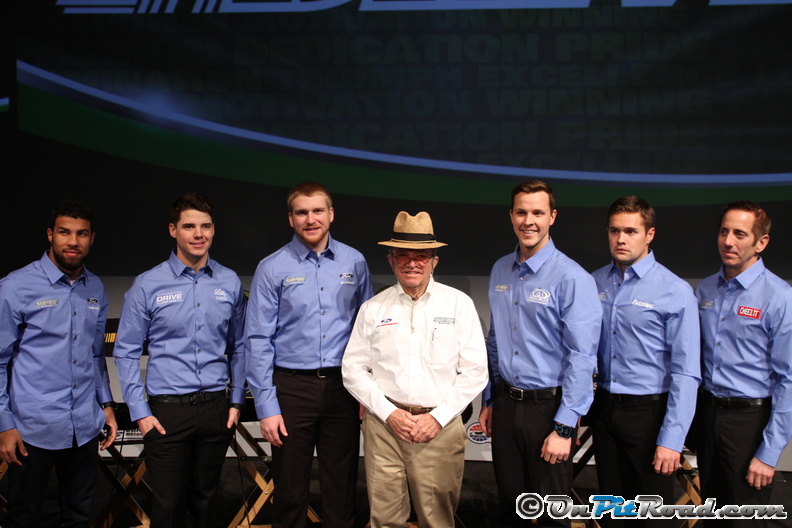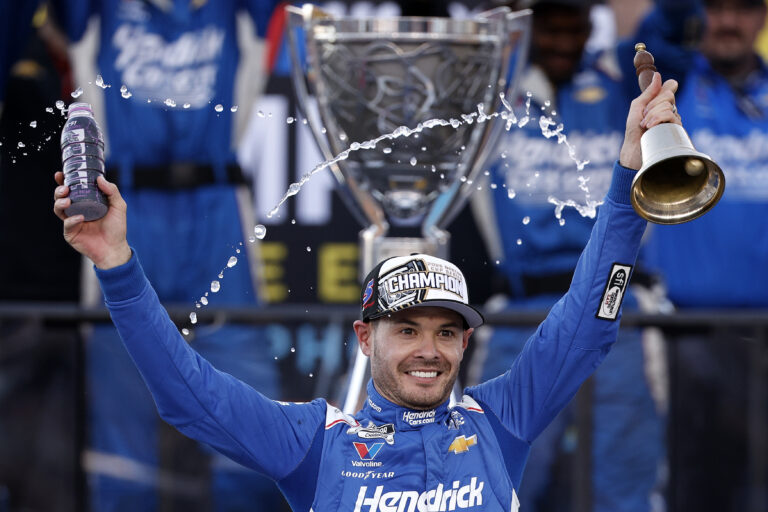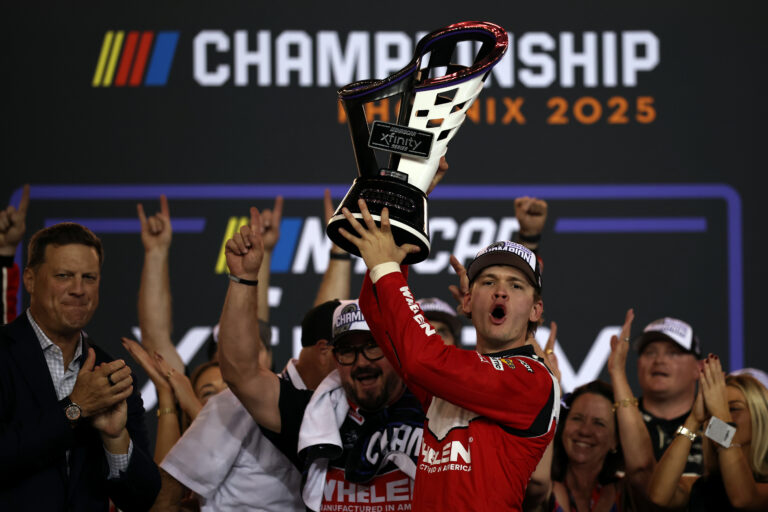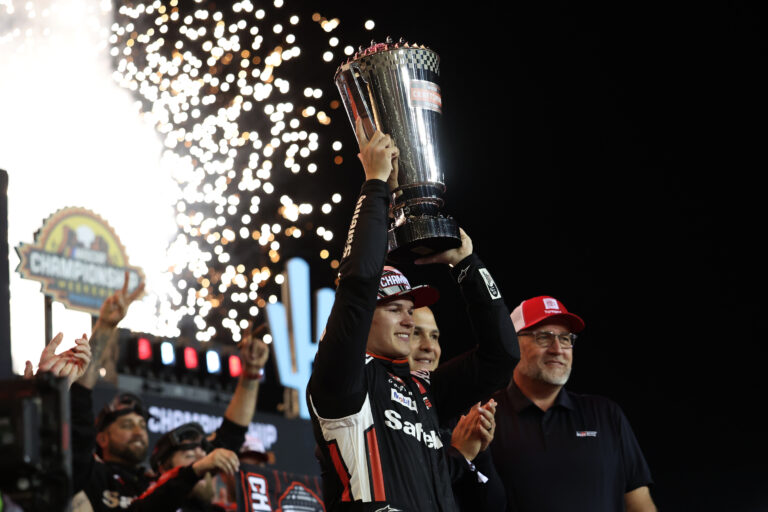
Photo Credit: Noel Lanier
REID SPENCER/NASCAR WIRE SERVICE —- CHARLOTTE, N.C. – Roush Fenway Racing President Steve Newmark concedes that, in January, every executive of every organization competing in the NASCAR Spring Cup Series will be singing the same tune.
In other words, in January, before any cars actually hit the race track, everyone is excited and optimistic about the coming season.
This year, however, to hear the drivers and principals of Roush Fenway tell it, the happy talk isn’t just lip service. To be sure, Newmark’s attitude stood in stark contrast to the substandard performances turned in by all three RFR NASCAR Sprint Cup Series drivers last year.
“In the halls of Roush Fenway the last few months, there has been a level of enthusiasm and energy that is unparalleled since I have been in this sport,” Newmark said on Wednesday during the Roush Fenway stop on the Charlotte Motor Speedway Media Tour.”
“It has been well documented, some of the changes we have been undergoing with adding new talent, restructuring how we operate, all with an effort to improve the performance on the track. When you see the effort and energy put into it, it has far exceeded our expectations.”
RFR has upped its engineering effort in a sport that has become increasingly engineering-oriented. Crew chief Brian Pattie was recruited from now-defunct Michael Waltrip Racing to work with Greg Biffle. Matt Puccia, Biffle’s crew chief in 2015, has moved to the No. 6 Ford of Trevor Bayne.
And to a man, the Roush drivers believe the new low-downforce competition package NASCAR has adopted for all open-motor race tracks this year will benefit the entire organization.
“I think it will be a great season for us,” Biffle said. “We were trending in the right direction at the end of 2015, and we know with these changes we will continue that.
“The low downforce was two of our best races in the Cup Series for Trevor, Ricky and myself (during trial runs at Kentucky and Darlington). We all ran good (at those two tracks), and that will be the package for 2016 so we think that will be good for us.”
But in order to improve, RFR will have to find a way to get its cars to do a better job turning through the corners.
“Greg and Trevor and I are all asking for the same thing, trying to get our front ends to turn a little better,” Stenhouse told the NASCAR Wire Service. “Our horsepower’s good. It takes every part of the car to get it through the corner, and for whatever reason, our limiting factor is getting our front end to turn.
“That’s been kind of an issue since I’ve gotten into the Cup car (in 2013) at Roush Fenway, and it’s gotten a little bit worse as we’ve gone. But then last year is the first year that I’ve actually seen it and felt it get better in the race car. That’s where, I think, a lot of the positive things are coming from, and us as drivers actually felt a lot of the gains we had last year — but still knowing that we need a lot more.”




